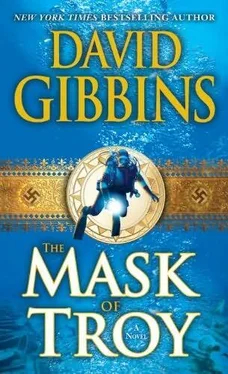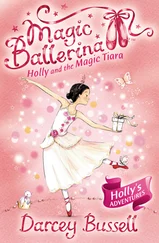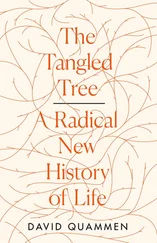David Gibbins - The Mask of Troy
Здесь есть возможность читать онлайн «David Gibbins - The Mask of Troy» весь текст электронной книги совершенно бесплатно (целиком полную версию без сокращений). В некоторых случаях можно слушать аудио, скачать через торрент в формате fb2 и присутствует краткое содержание. Жанр: Триллер, на английском языке. Описание произведения, (предисловие) а так же отзывы посетителей доступны на портале библиотеки ЛибКат.
- Название:The Mask of Troy
- Автор:
- Жанр:
- Год:неизвестен
- ISBN:нет данных
- Рейтинг книги:3 / 5. Голосов: 1
-
Избранное:Добавить в избранное
- Отзывы:
-
Ваша оценка:
- 60
- 1
- 2
- 3
- 4
- 5
The Mask of Troy: краткое содержание, описание и аннотация
Предлагаем к чтению аннотацию, описание, краткое содержание или предисловие (зависит от того, что написал сам автор книги «The Mask of Troy»). Если вы не нашли необходимую информацию о книге — напишите в комментариях, мы постараемся отыскать её.
The Mask of Troy — читать онлайн бесплатно полную книгу (весь текст) целиком
Ниже представлен текст книги, разбитый по страницам. Система сохранения места последней прочитанной страницы, позволяет с удобством читать онлайн бесплатно книгу «The Mask of Troy», без необходимости каждый раз заново искать на чём Вы остановились. Поставьте закладку, и сможете в любой момент перейти на страницу, на которой закончили чтение.
Интервал:
Закладка:
‘It was not the war that upset the balance of power,’ Bismarck replied coldly. ‘It was the peace treaty. As you know perfectly well, I strenuously opposed the secession of Alsace-Lorraine to Germany. I saw in it the seedbed of the future. Of an even more calamitous war to come.’
‘And then you took Germany on a colonial adventure in Africa. In deliberate and ostentatious antagonism towards the interests of my own government.’
‘It deflected the French focus on Alsace-Lorraine. I believe in so doing I prevented a terrible escalation in Europe. And colonial adventures? Under the premiership of Mr Gladstone? I have not enough fingers to count them. War in Zululand, 1879. Afghanistan, 1880. The Sudan, 1885. Brave soldiers, yes, but bungled wars, all of them. Dispatching General Gordon to Khartoum, then failing to rescue him. I give you the Right Honourable William Ewart Gladstone, peacemaker.’
‘Gentlemen.’ Hoar held up his hand. ‘We are not on the debating floor. And we all know that the morality of a man is not easily judged by the circumstances in which history envelops him, and for which history may yet hold him accountable.’
Gladstone and Bismarck both snorted and shuffled for a moment, and then stood still. Hoar lowered his hand. Schliemann looked at them, a sudden flicker of doubt in his mind. Had he misjudged them? Had he himself been too much of an idealist, blinded to reality? Were they all too old, too much immured in the rhetoric of politics, their morality calcified? He needed to know. He spoke quietly, almost whispering. ‘What say you?’ he began. ‘What say you, gentlemen, on the subject of war?’
Gladstone looked hard at him, then glanced down. ‘My detractors call me a pious pacifist,’ he said, his voice less theatrical. ‘And they are right. Herr Bismarck is right, too. I did let General Gordon down. It weighs heavily upon me. My Christian morality is at odds with war, and sits poorly when war is thrust upon me. I ask forgiveness from those dead warriors I did not have the courage to lead into battle like an Agamemnon.’
Schliemann turned to Bismarck, who had been looking shrewdly at Gladstone. Bismarck leaned on his cane, and put his other hand on his hip. ‘I have proclaimed that the great questions of the time will not be resolved by speeches and majority decisions, but by iron and blood. To maintain the vote, I must appear to be a Prussian realist. But anyone who has ever looked into the glazed eyes of a soldier dying on the battlefield will think hard before starting a war.’
Schliemann slowly nodded. ‘And Mr Hoar?’
Hoar spoke carefully, deliberately, without the flourish of the other two but holding their attention completely. ‘I have never held the reins of supreme power, as have these two distinguished gentlemen, but I have made my voice heard over generations of presidents. I have seen the devastation of our own brush with Armageddon, the Civil War. I have watched with trepidation the hawks in our government who would bring America into the colonialist fray. Even where there is moral purpose in such adventure, we would slay thousands whom we would seek to benefit. We would bring home from war innumerable sick and wounded and insane to drag out miserable lives, wrecked in body and mind. We would make sullen and irreconcilable enemies the world over, possessed of a hatred that centuries will not eradicate. Our flag would become an emblem of sacrilege: of the burning of human dwellings, of the horror of torture. I do not like to think of America angry, snarling, clawing, but as an august and serene beauty. A beauty, gentlemen, perhaps a little pale in her cheeks, with a dangerous glint in her eyes, but inspired by a sentiment, even toward her enemies, not of hate, but of love. Gentlemen, I am implacably opposed to war.’
‘We are resolved, then,’ Schliemann said.
‘We are resolved,’ Hoar said, looking sharply at Bismarck and Gladstone. ‘But pray tell, my dear Schliemann. Resolved to what purpose?’
Schliemann stared at the ground. Now was the time. He delved his hands into his pockets and held them out, his fists bunched as if concealing something. ‘Mr Gladstone. You have written to me about ancient copper metallurgy. You were fascinated when I discovered that the age of heroes was an age of bronze. Well, it will delight you to know that we have found many bronze arrowheads in the ruins of Homeric Troy. Arrowheads that I believe were fired into the citadel from the shoreline where the Greek ships of Agamemnon were beached. Arrowheads such as these.’ He opened his left fist to reveal two tanged leaf-shaped barbs, green with corrosion. He proffered them.
‘May I?’ Gladstone said. Schliemann nodded, and Gladstone dropped his cane, took the two arrowheads, then whipped out an eyeglass and examined them closely. ‘Native copper is found widely and abundantly, I believe,’ he murmured. ‘But tin? Do you know where the tin in this bronze came from?’
‘You will be astonished by my theory.’
‘Nothing you say can astonish us now.’
Schliemann peered at him, his eyes burning with excitement. ‘Here it is. At the dawn of the classical era, the Greeks wrote of their forebears going west, exploring the very limits of the known world. I believe these included survivors of Troy, fleeing apocalypse. One of them we know well: Aeneas, legendary founder of Rome. But I believe they were not the first. I believe they were following in the wake of earlier explorers, of the Bronze Age before the fall of Troy, ancestors of the greatest seafarers of the ancient world. You may guess of whom I speak. You are a biblical scholar as well, Mr Gladstone. The Phoenicians. The Phoenicians who sailed out into the Atlantic and far to the north, where they found a fabled archipelago, a group of islands the Greeks called Cassiterides.’
‘The Tin Islands,’ Gladstone exclaimed, removing his eyepiece and staring at Schliemann. ‘I stand corrected. You do astonish me. Do you mean to assert that the Trojans, the Mycenaeans, acquired their tin from the Cassiterides?’
‘By which I refer, gentlemen, to the British Isles, to the tin mines of Cornwall. It cannot be proved at present, but I am certain of it.’
Hoar put up a hand. ‘I beg your indulgence. You are suggesting that the Phoenicians, the traders of the Old Testament, were the metal-brokers of the Bronze Age? Those self-same Phoenicians who provided the Greeks with their alphabet?’
Schliemann nodded. ‘Brokers in a commodity far more precious than gold. You are correct, Mr Gladstone. The question of the tin is a vexing one. It was the rarest of commodities, and its sources were few. And I perceive that your thoughts, Mr Hoar, bend on a convergent path to mine. The Phoenicians did provide the Greeks with their alphabet, but much earlier than we had thought. I believe it was traders of the Bronze Age who first brought the alphabet to these shores. I believe the scribes of Agamemnon were the first to use the alphabet to write Greek.’
‘You believe they spoke Greek?’ Gladstone exclaimed. ‘You truly believe the Mycenaeans spoke Greek?’
‘I believe that the language of Homer was the language of Agamemnon.’
‘Mr Schliemann, I stand corrected again. My mind is in a perfect hurricane of astonishment.’
‘Scholars will ridicule me for the idea, those same scholars who mocked my quest for Troy. But I am sure of it.’
Bismarck pointed at Schliemann’s right fist. ‘And your other hand? What treasure have you concealed there?’
Schliemann held out the hand, then hesitated. ‘This, gentlemen, is truly why you are here.’ His voice was tense with excitement. ‘I knew I had to return to Troy. I believe, Mr Gladstone, that urgency, that feverish urgency, to have been the cause of my past illness. A mounting anxiety, with physical symptoms. Now that I am back here again, those symptoms have lifted. Two months ago, when we returned, we found this. To be precise, Sophia found it. She picked it from the spoil heap left beside the great trench we had dug through the site in 1871. I remembered seeing many of these, dozens, hundreds, but ignoring them in my thirst to dig deeper. I had been driven by a lust for gold, yes, but more than that, by a passion to prove that I was right, to find the Troy of Priam. And I was right. Yet in my enthusiasm I failed to see a greater truth that was staring at me. A truth that became my obsession in the years that followed, that vexed me day and night, that nearly overwhelmed me. Not whether Troy fell, but how. How mankind was toppled so quickly from brilliant civilization to the deepest well of barbarism. I talk not of Helen of Troy, not of the sophistry of poets, not of war caused by love and jealousy and rage, but of hard truth, the truth of power and bloodlust and the force of arms. A truth revealed not in gold and bronze, but in this.’
Читать дальшеИнтервал:
Закладка:
Похожие книги на «The Mask of Troy»
Представляем Вашему вниманию похожие книги на «The Mask of Troy» списком для выбора. Мы отобрали схожую по названию и смыслу литературу в надежде предоставить читателям больше вариантов отыскать новые, интересные, ещё непрочитанные произведения.
Обсуждение, отзывы о книге «The Mask of Troy» и просто собственные мнения читателей. Оставьте ваши комментарии, напишите, что Вы думаете о произведении, его смысле или главных героях. Укажите что конкретно понравилось, а что нет, и почему Вы так считаете.












